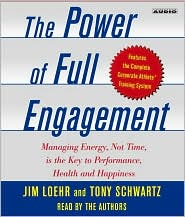Brooke Randolph, LMHC is the newest expert contributor at DietsInReview.com. Learn more about Brooke, and look for her articles every Monday.
As a Licensed Mental Health Counselor, I am passionate about helping people improve their lives in the ways that are most meaningful to them. Many find it interesting that some of the first strategies I employ to assist my clients in fighting some of the most common mental health concerns such as depression and anxiety, include working on physical energy habits, such as nutrition, sleep, and exercise.  Our physical health and mental health are entwined. In “The Power of Full Engagment,” Jim Loehr and Tony Schwartz identify four key life areas that interplay (physical, emotional, mental, and spiritual) with their energy pyramid. Most people intuitively understand that when grieving it is difficult to concentrate on work, that bad news seems more difficult to handle at the end of a long day, and that sitting in a meeting with a difficult client can leave one exhausted without ever rising from the chair.
Our physical health and mental health are entwined. In “The Power of Full Engagment,” Jim Loehr and Tony Schwartz identify four key life areas that interplay (physical, emotional, mental, and spiritual) with their energy pyramid. Most people intuitively understand that when grieving it is difficult to concentrate on work, that bad news seems more difficult to handle at the end of a long day, and that sitting in a meeting with a difficult client can leave one exhausted without ever rising from the chair.
I have been presented with clients diagnosed with major depressive disorders that no longer feel they need to continue therapy once we have improved physical energy by reintegrating the daily habits of exercise and a healthy breakfast. For those experiencing anxiety, it is most helpful to allow your body to practice recovering from the stress/adrenaline response with regular cardiovascular exercise.
Next Monday, tune in to learn how physical health and mental health also can have a negative relationship.

Over the past few years, I have run a fitness program for people suffering with mild to moderate depression.
Based upon the latest research, a personal trainer works with 1 or 2 clients at a time to take them through a prescribed dose of “exercise”
We have seen a 73% rate of remission of the 12 week program.
The only drawback is that only workplaces with a unionized workforce have been willing to try this program.
Anti-depressants are a much cheaper short-term solution.
Long term, the results from anti-depressant therapy is looking worse year after year.
DR, isn’t it amazing the results we can see when people are empowered and equipped to care for themselves? Although there are times when medication is necessary for mental health disorders just like there are times when it is necessary for physical health disorders, I believe that living a healthy life can make a major difference both in prevention and healing. You may already understand most of this post, but I hope in future weeks you will find something that can help add to your program.